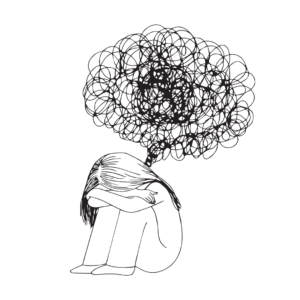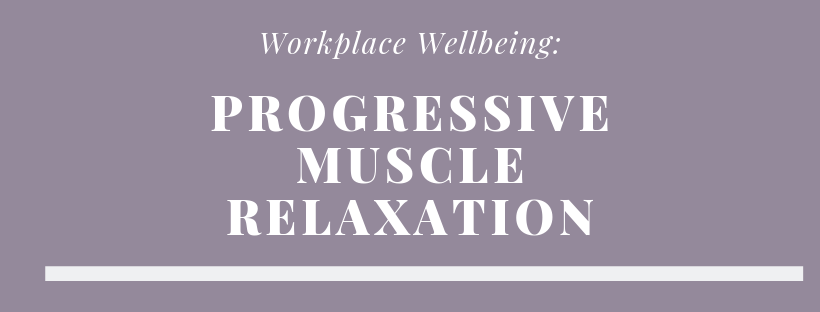
Counselling and stress relief
In today’s fast-paced world, stress has become an ever-present companion for many individuals. From the pressures of work and relationships to the demands of daily life, stress can manifest in various forms and affect both mental and physical well-being.
 I’m sure we have all been faced with issues that we have felt the need to talk about; to ‘get off our chests’. Life experiences can be complicated whether they involve past trauma, current relationship difficulties or workplace issues – they can be upsetting and unsettling. For a myriad of reasons it can be difficult to talk to friends and family but we will all know how much better we feel when we can unload and unburden.
I’m sure we have all been faced with issues that we have felt the need to talk about; to ‘get off our chests’. Life experiences can be complicated whether they involve past trauma, current relationship difficulties or workplace issues – they can be upsetting and unsettling. For a myriad of reasons it can be difficult to talk to friends and family but we will all know how much better we feel when we can unload and unburden.
Fortunately, there is a beacon of hope amidst the chaos: counselling. But counselling is so much more than simply talking to someone. With its tailored approaches and supportive environment, counselling offers a path towards understanding, managing, and ultimately alleviating stress that results from life’s complications. In this blog, we’ll explore how counseling can serve as a powerful tool in combating stress.
Understanding stress: the silent intruder
Before looking at the ways counselling can reduce stress, it’s crucial to grasp the multifaceted nature of stress itself. We rarely or perhaps never have one stressful issue in our lives. Stress is multidimensional, with stressors often being interrelated. For example, feeling undermined in the workplace will cause stress but also impact on confidence. This in turn can negatively affect relationships. According to the academics Lazarus and Folkman, stress arises from the interaction between individuals and their environment, where perceived threats or challenges exceed one’s ability to cope. This model emphasises the subjective interpretation of stressors which are more often than not emotional stimuli rather than physical.
The therapeutic alliance: a safe haven
One of the most important factors in counselling for stress management is the establishment of a therapeutic alliance between the counsellor and the client. This relationship is of paramount importance. The client has to feel able to tell the counsellor anything and everything. The relationship with the counsellor should provide a safe space for the client to express their thoughts, emotions, and concerns without fear of judgment. Research by Horvath and Luborsky (1993) underscores the significance of the therapeutic relationship, indicating that a strong alliance correlates with positive therapeutic outcomes.
The person centred approach: exploring and empowering

Person Centred Counselling is about putting the client in the driving seat. The approach places the emphasis on the client rather than the therapist. The role of the therapist is to use various techniques to guide the client rather than to instruct them. This is a major difference from approaches such as CBT which is more directive. A person-centred therapist will use techniques to help the client to explore their thoughts, beliefs and experiences with the aim of empowering the client to become more self-aware.
This therapy can be extremely effective where the client’s stress results from behaviour that is rooted in their past or comes from complex relationships.
Mindfulness and relaxation techniques in counselling
 Incorporating mindfulness and relaxation techniques into counselling sessions can significantly alleviate stress. Mindfulness-based interventions encourage individuals to cultivate present-moment awareness and acceptance. Many research studies have found mindfulness to be associated with reduced stress levels and enhanced mental health and wellbeing. If a counsellor feels that relaxation techniques would help a client then simple mindfulness techniques can be used. The advantage of this is that the client can then draw on these techniques outside of the counselling sessions.
Incorporating mindfulness and relaxation techniques into counselling sessions can significantly alleviate stress. Mindfulness-based interventions encourage individuals to cultivate present-moment awareness and acceptance. Many research studies have found mindfulness to be associated with reduced stress levels and enhanced mental health and wellbeing. If a counsellor feels that relaxation techniques would help a client then simple mindfulness techniques can be used. The advantage of this is that the client can then draw on these techniques outside of the counselling sessions.
Emotional regulation: navigating the storm
Overwhelming emotions that can feel like an uncontrollable storm often accompany stressful situations. Counselling offers a supportive environment for individuals to explore and regulate their emotions effectively. Dialectical behavior therapy (DBT), developed by Linehan (1993), emphasises emotion regulation skills to help individuals manage intense emotions and reduce stress-related symptoms.
Cognitive-behaviour: rewiring thought patterns
Cognitive-behavioral therapy (CBT) stands out as a highly effective approach in stress reduction. Rooted in the premise that thoughts influence emotions and behaviors, CBT equips individuals with practical techniques to identify and challenge negative thought patterns. This approach can be very effective in dealing with the here and now but less so when trying to understand behaviour routed in past experience.
Building resilience: strengthening the armour
 Counselling empowers individuals to build resilience—the ability to bounce back from adversity—in the face of stressors. Through psychoeducation and skill-building exercises, individuals learn to adaptively cope with challenges and setbacks.
Counselling empowers individuals to build resilience—the ability to bounce back from adversity—in the face of stressors. Through psychoeducation and skill-building exercises, individuals learn to adaptively cope with challenges and setbacks.
Research by Southwick et al. (2014) suggests that resilience-building interventions enhance stress resistance and improve psychological functioning.
Social support networks: weaving a safety net
Stress thrives in isolation but withers in the presence of social support networks. Counselling facilitates the exploration and cultivation of supportive relationships, whether with family, friends, or community resources. A study by Uchino (2004) highlights the protective effect of social support against the harmful effects of stress on physical and mental health. In particular, the researchers cited the” epidemiological evidence, social support appears to be related to more positive biological profiles”. Counselling can help to promote this social support by giving people an understanding of relationship issues or aspects of their own behaviour that might be limiting friendships and relationships.
A beacon of hope in the storm
In the journey towards stress relief, counselling serves as a beacon of hope, illuminating the path towards healing and resilience. With the support of a nurturing therapeutic relationship individuals can navigate the complexities of stress with greater ease and empowerment.
It sounds cheesy but learning about yourself can be the most liberating knowledge that you will gain!
References:
– Lazarus, R. S., & Folkman, S. (1984). Stress, Appraisal, and Coping. New York: Springer.
– Horvath, A. O., & Luborsky, L. (1993). The Role of the Therapeutic Alliance in Psychotherapy. Journal of Consulting and Clinical Psychology, 61(4), 561–573.
– Linehan, M. M. (1993). Cognitive-Behavioral Treatment of Borderline Personality Disorder. New York: Guilford Press.
– Southwick, S. M., Bonanno, G. A., Masten, A. S., Panter-Brick, C., & Yehuda, R. (2014). Resilience Definitions, Theory, and Challenges: Interdisciplinary Perspectives. European Journal of Psychotraumatology, 5(1), 5338.
– Uchino, B. N. (2004). Social Support and Health: A Review of physiological processes potentially underlying links to disease outcomes. Journal of Behavioural Medicine 2006 Aug;29(4):377-87
Phoenix Health and Wellbeing is a charitable social enterprise based in Leeds, West Yorkshire. We offer support in the form of counselling, acupuncture and massage therapies to people who are referred to us by medical professionals, due to their chronic health issues and low incomes. By using our services you are helping us to continue with this life enhancing support.
Find out more about our work here or view our counselling team or make a booking
Opening times:
Monday to Thursday: 10.00 to 20.00
Friday and Saturday: 10.00 to 16.00




